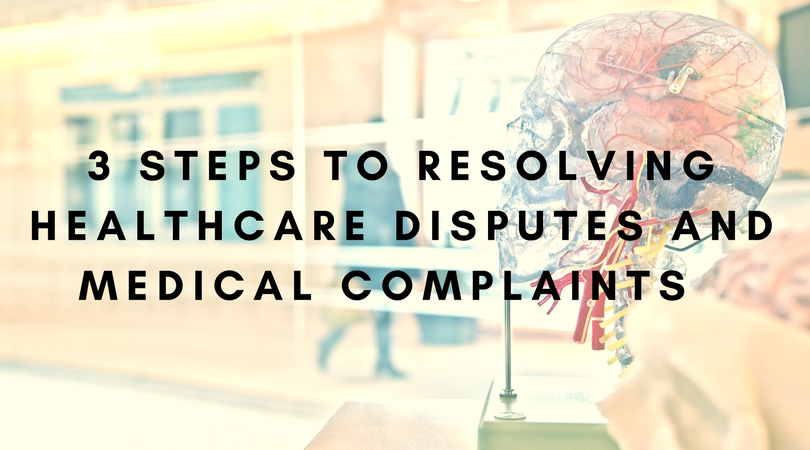Healthcare is undergoing change at a rapid pace. Medical technology is advancing at an unprecedented rate, while patients are gaining greater access to information and a greater awareness of their rights. Coupled with recent changes in Singapore’s law on medical advice towards a more patient-centric legal test, and we have a landscape with great potential for medical complaints.
If you wish to raise some of your concerns about your medical care or your healthcare provider, here are 3 simple steps you can follow:
Direct Communication
Your first step in resolving any healthcare disputes should be to raise your concerns directly to your healthcare provider. Based on Peacemakers’ experience, the majority of healthcare related disputes can be resolved through direct communication between both parties. Most hospitals have dedicated departments to handle patients’ queries and feedback, and are well equipped to assist patients or their caregivers with any relevant concerns raised.
The benefits of resolving the matter directly are manifold. Patients can highlight their concerns directly to their healthcare providers, clarify their doubts, while saving valuable time and money.
Mediation
Should direct negotiations between patients and healthcare providers not be fruitful, the next step would be to consider mediation. Mediation provides a confidential environment where both patients and healthcare providers can communicate freely and openly, with the goal of working towards a mutually agreeable solution with the mediators’ assistance. Mediators do not decide what parties should or should not do. Rather, mediators facilitate parties’ discussions by offering new perspectives and facilitating unique solutions which address everyone’s concerns.
Mediations are completely voluntary, which means that nobody can be forced to attend mediation. Should parties all choose to attend mediation however, there are important conditions to meet for the mediation to be successful. These include: (i) attendees having authority to settle the dispute; (ii) participation in good faith; and (iii) respecting the confidentiality of all matters discussed for and at mediation.
Mediation is especially suitable for healthcare disputes because of their unique nature. Healthcare disputes tend to be emotionally charged, and may involve large quantum of claims due to medical bills and/or claims for pain and suffering. Mediation provides a platform for parties to share their perspectives and feelings candidly with one another, and for parties to work on developing a customised solution (beyond mere monetary compensation) which meets everyone’s needs.
Litigation
If parties remain unable to resolve the matter after mediation, patients remain free to make a legal claim against their healthcare providers in court. You should look for a lawyer specialising in medical law to help you ascertain the liability of the medical practitioner or institution. Claims can be made for either General or Special Damages. General damages include pain and suffering, loss of future earnings, and loss of earning capacity. Special damages are more easily quantifiable, such as medical bills and related expenses for which documentation has been kept. Ultimately however, even if patients succeed at trial, the courts can only award damages as compensation.
As healthcare disputes involve medical reports and medical experts, they tend to be costlier to litigate and may result in lengthier trials. Thankfully, the Courts in Singapore have acknowledged this and are implementing improvements to its existing protocols. Mediation is thus expected to feature heavily in the near future.
-
Peacemakers is affiliated to a select group of mediators, all of whom are experienced with healthcare and medical disputes. If you believe that you had experienced medical negligence or malpractice, or just have a healthcare-related dispute you wish to speak with someone about, please contact us at mediate@peacemakers.sg to see how we can assist you!

